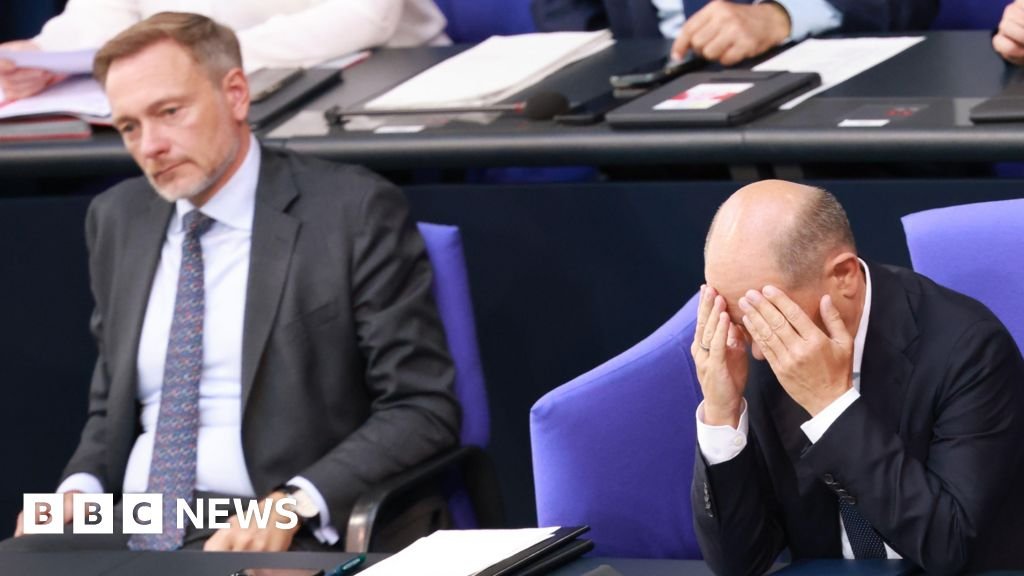But internal tensions had been building for weeks before exploding in the open on Wednesday night.
Scholz harshly criticized his former finance minister, saying he had “betrayed my trust” and accused him of putting the interests of his party ahead of the interests of the country.
He added that Germany needs to show that other countries can rely on it, especially after the election of Donald Trump.
The crisis within the coalition has plunged Europe’s biggest economy into political chaos, hours after Trump’s election, sparking deep uncertainty about the future of the continent’s economy and security.
When a coalition was formed in 2021 between the chancellor’s centre-left Social Democrats, the environmentalist Greens and the economically liberal FDP, each party planned to spend heavily on its own core interest groups.
But then Russia launched a full-scale invasion of Ukraine, energy prices soared, and Germany suddenly faced a huge and controversial increase in defense spending — and the cost of hosting 1.5 million Ukrainian refugees.
Germany is now experiencing a second year without economic growth. The prospect of a Trump presidency simply adds to the sense of urgency that Germany needs a strong government and policy to jump-start its economy.
For Chancellor Scholz and his Green partners, the answer to the crisis is to loosen constitutional rules on public debt to allow more spending. But this is something the free market FDP is adamantly opposed to.
Instead, Lindner wants to fix the economy by cutting taxes, which are paid for by cutting social and welfare budgets and rejecting environmental goals.
The Minister of Economy of the Greens, Robert Haback, said that the party will not leave the government and that its ministers will remain in their positions.
Scholz announced that a vote of confidence will be held in the German parliament, the Bundestag, on January 15. If MPs reject the government, the country will hold new elections within weeks instead of the planned September date.
Now the CDU is far ahead in the polls. Scholz’s Social Democrats and the far-right Alternative for Germany are in second place.

